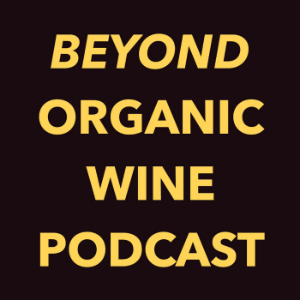
Beyond Organic Wine
Arts & Culture Podcasts
Organic Wine is the gateway to explore the entire wine industry - from soil to sommeliers - from a revolutionary perspective. Deep interviews discussing big ideas with some of the most important people on the cutting edge of the regenerative renaissance, about where wine comes from and where it is going.
beyondorganicwine.substack.com
Location:
United States
Genres:
Arts & Culture Podcasts
Description:
Organic Wine is the gateway to explore the entire wine industry - from soil to sommeliers - from a revolutionary perspective. Deep interviews discussing big ideas with some of the most important people on the cutting edge of the regenerative renaissance, about where wine comes from and where it is going. beyondorganicwine.substack.com
Language:
English
Contact:
3106633542
Email:
adam@centralaswine.com
Don’t Drink Champagne On New Years
Duration:00:04:48
Embracing Life - Beyond Organic Wine 2025
Duration:00:19:09
Syntropic Vitiforestry with Married Vines
Duration:01:28:58
Folk Wines & Ciders - Greenpoint Cidery with Nika Carlson
Duration:01:28:16
Regenerative Organic Wine At Any Scale - Joseph Brinkley of Bonterra
Duration:01:07:57
Usonia Wine - Alex & Julia Alvarez-Perez
Duration:00:26:54
Rage Against The Machine: Winegrowing for Human Wellness
Duration:01:32:34
Dying On The Vine - Phylloxera, Hybrids, and the History & Future of Wine with George Gale
Duration:01:06:21
Pro-Human Natural Wine at Amiti
Duration:01:42:56
Nature Is An Event To Celebrate, Not A Problem To Solve
Duration:01:11:33
400+ Years Without Chemicals - Chateau Le Puy
Duration:01:00:27
400+ Years Without Chemicals - Chateau Le Puy
Duration:01:21:34
Alder Yarrow
Duration:01:33:25
Editing Grape Prejudice on Wikipedia
Duration:00:10:10
Naked Grazing - Jared Lloyd
Duration:00:23:23
Wine Resilience As Political Resistance
Duration:01:24:01
Back To The Land Wine - Joe Barreca, Barreca Vineyards
Duration:01:47:58
Remembered By Being Forgotten
Duration:01:42:12
Pascal Baudar - Wine Impressionism
Duration:00:40:54
Pascal Baudar - Wine Impressionism
Duration:00:40:54